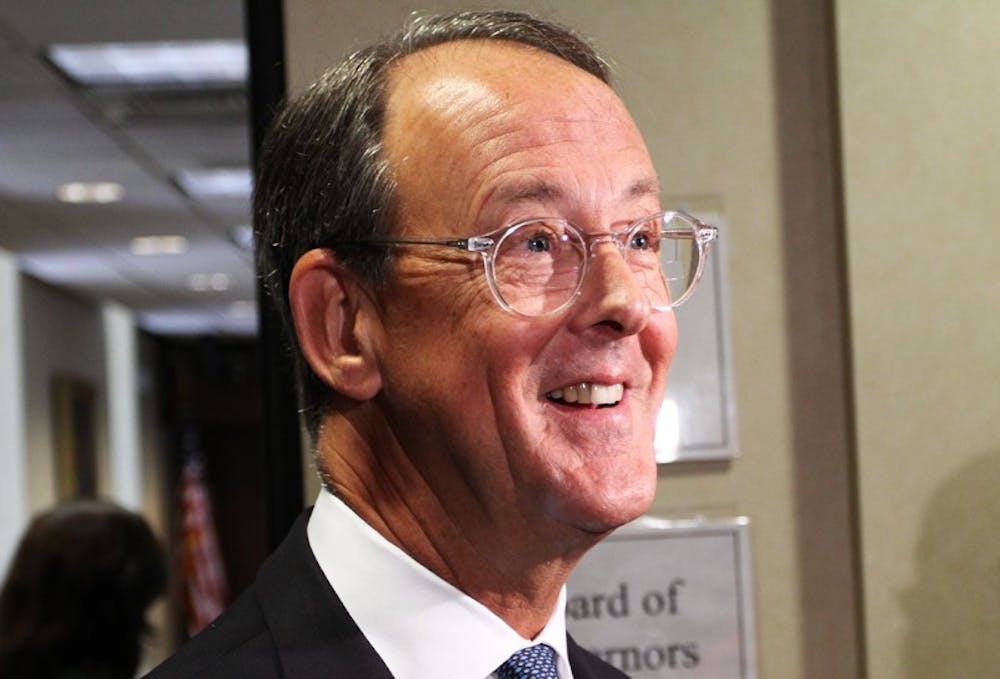In 24 days, Erskine Bowles will be effectively unemployed.
After five years of service as president of the UNC system, Bowles will officially step down and his replacement, Thomas Ross, will take over the helm. He has large shoes to fill.
Frankly, no one could have asked for better leadership. The system has spent the last several years weathering budget cuts that have threatened not only finances, but also the quality of education at large.
Through all of this, Bowles’ management has been tested more than ever. And consistently, he has delivered.
But this year especially was an outlier. Bowles spent much of it fulfilling two roles, as head of the system and as the co-chairman of President Obama’s National Commission on Fiscal Responsibility and Reform.
Given his tireless effort spent preserving both the quality of education in North Carolina and righting the nation’s fiscal woes, the choice to make Bowles “Tar Heel of the Year” was abundantly clear. It might be a fitting farewell to an impressive tenure, if it wasn’t so well deserved even outside the context of his other years of service.
Tar Heel born and bred
Bowles is true blue. Hailing from Greensboro, he made his way from the Triad to the Triangle for college here at UNC (class of 1967). After graduation, he could just as easily have left North Carolina for good, especially in light of the successful career that followed.
And yet he returned, founding the successful investment banking company Bowles Hollowell Connor & Co, in addition to other ventures. And while he occasionally found callings outside the state, he always returned home.
The list of roles that he has held over the years runs long: deputy director of the small business administration, deputy White House chief of staff, White House chief of staff, chairman of the Rural Property Task Force, trustee of the Golden Leaf Foundation and, most recently, co-chairman of the president’s debt commission.



